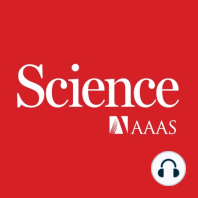25 min listen

‘The Tragedy of the Commons’ turns 50, and how Neanderthal DNA could change your skull
‘The Tragedy of the Commons’ turns 50, and how Neanderthal DNA could change your skull
ratings:
Length:
24 minutes
Released:
Dec 13, 2018
Format:
Podcast episode
Description
In 1968, Science published the now-famous paper “The Tragedy of the Commons” by ecologist Garrett Hardin. In it, Hardin questioned society’s ability to manage shared resources, concluding that individuals will act in their self-interest and ultimately spoil the resource. Host Meagan Cantwell revisits this classic paper with two experts: Tine De Moor, professor of economics and social history at Utrecht University in the Netherlands, and Brett Frischmann, a professor of law, business, and economics at Villanova University in Pennsylvania. They discuss how premodern societies dealt with common resources and how our current society might apply the concept to a more abstract resource—knowledge.
Not all human skulls are the same shape—and if yours is a little less round, you may have your extinct cousins, the Neanderthals, to thank. Meagan speaks with Simon Fisher, neurogeneticist and director of the Max Planck Institute for Psycholinguistics in Nijmegen, the Netherlands, about why living humans with two Neanderthal gene variants have slightly less round heads—and how studying Neanderthal DNA can help us better understand our own biology.
This week’s episode was edited by Podigy.
Download a transcript of this episode (PDF)
Listen to previous podcasts.
About the Science Podcast
[Image: Phillip Gunz; Music: Jeffrey Cook]
Not all human skulls are the same shape—and if yours is a little less round, you may have your extinct cousins, the Neanderthals, to thank. Meagan speaks with Simon Fisher, neurogeneticist and director of the Max Planck Institute for Psycholinguistics in Nijmegen, the Netherlands, about why living humans with two Neanderthal gene variants have slightly less round heads—and how studying Neanderthal DNA can help us better understand our own biology.
This week’s episode was edited by Podigy.
Download a transcript of this episode (PDF)
Listen to previous podcasts.
About the Science Podcast
[Image: Phillip Gunz; Music: Jeffrey Cook]
Released:
Dec 13, 2018
Format:
Podcast episode
Titles in the series (100)
Science Podcast - Science's breakthrough of the year, runners-up and the top content from our daily news site (20 Dec 2013) by Science Magazine Podcast